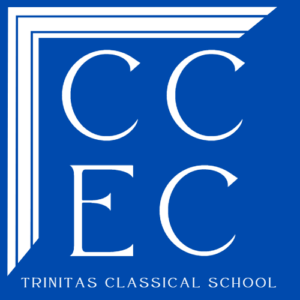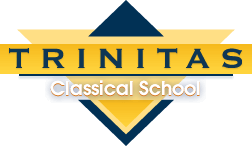 As we mentioned in our previous post, our virtue focus for the quarter is Faith. As is the case with other virtues, Faith has some “prerequisites”—certain things that are required as a condition for faith to grow. Perhaps chief among them is a sense of gratitude. A heart that is full of thanks rises to the One to whom that thanks is due and overflows with generosity toward others. It can be hard work to have full hearts. Pride is often identified as the first sin of the Fall, but ingratitude did not play a minor role. Adam and Eve were given all of the trees of the garden but one, and yet…. You know the rest of the story: discontent became part of our fallen human nature.
As we mentioned in our previous post, our virtue focus for the quarter is Faith. As is the case with other virtues, Faith has some “prerequisites”—certain things that are required as a condition for faith to grow. Perhaps chief among them is a sense of gratitude. A heart that is full of thanks rises to the One to whom that thanks is due and overflows with generosity toward others. It can be hard work to have full hearts. Pride is often identified as the first sin of the Fall, but ingratitude did not play a minor role. Adam and Eve were given all of the trees of the garden but one, and yet…. You know the rest of the story: discontent became part of our fallen human nature.
In C.S. Lewis’s The Great Divorce, an unnamed Narrator finds himself in Grey Town where he boards a bus. That bus takes the travelers to the foothills of Heaven. Grey Town, it turns out, is either Hell or Purgatory, depending on whether one chooses to remain there or not. On his journey, the Narrator meets George MacDonald,* sent from Heaven to greet him, and their conversation is “interrupted by the thin voice of a Ghost talking at an enormous speed…” If you’ve read the book or seen the play, you know what follows is a veritable flood of complaints, a self-absorbed “shrill monotonous whine.”
MacDonald notices the Narrator’s distress: “What troubles ye, son?” asked my Teacher. “I am troubled, Sir,” said I, “because that unhappy creature doesn’t seem to me to be the sort of soul that ought to be even in danger of damnation. She isn’t wicked: she’s only a silly, garrulous old woman who has got into a habit of grumbling, and one feels that a little kindness, and rest, and change would put her all right.”
